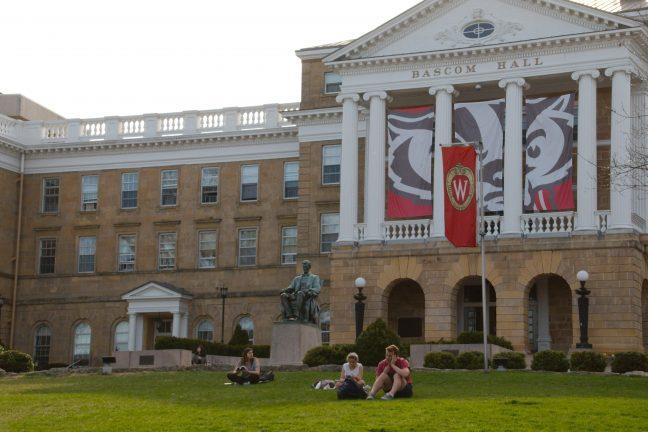Under a newly-approved policy in August, the University of Wisconsin will add more single-stall, gender inclusive restrooms on campus over the next several years as buildings undergo renovation and construction.
According to UW news website, under this policy, each new and renovated building should have at least one gender-inclusive restroom on the first floor, and to the extent possible, at least one on every other floor.
According to the UW Knowledgebase, the creation of single-stall, gender-inclusive restrooms serves as an alternative to multi-stall, gender specific restrooms, and is meant to make all students, staff, faculty and visitors on campus feel safe and comfortable using the restroom they want to use.
According to Meredith Mcglone, of UW University Communications, the policy came into formation thanks to the Gender Inclusive Restroom Facilities Task Force, a shared governance group on campus founded in 2017. The task force was charged by then-Provost Sarah Mangelsdorf and Vice Chancellor for Finance and Administration Laurent Heller, in response to feedback received from students, faculty and staff.
According to the UW news website, the task force is made up of representatives from University Housing, Facilities Planning & Management, the Committee for LGBTQ People in the University, the Gender and Sexuality Campus Center, as well as students, faculty, university staff and academic staff.
Mcglone also added the Chancellor’s office was not part of the task force but was supportive of what the task force was pushing for.
Mcglone said one of the main goals the policy aims to achieve is to ensure transgender and gender nonconforming people feel safe to use campus facilities without fear of harassment. These facilities also support individuals with disabilities, individuals who have personal care assistants and people with kids.
UW sophomore Arden He was supportive of the policy. He suggested the installation of more gender-inclusive restrooms might benefit a larger sect of the LGBTQ larger community.
“Not even just for non-binary people, it can also help binary trans people as well, who maybe aren’t as far along in their transition because they can have a safe space to go to the bathroom,” He said.
UW junior Kiana Gomez said although students who are graduating soon may not be able to witness the policy being fully implemented on campus over the next several years, for generations to come, more incoming students could benefit from the policy.
According to UW news website, currently there are about 145 single-stall, gender inclusive restrooms on campus. There is an online map helping students, faculty, staff and visitors locate these facilities.
While acknowledging the efforts the university had put in to make such facilities accessible to students, He said sometimes it could still be a hassle having to travel to another building between classes just to use the restroom there.
He added going to the bathroom is a daily occurrence for everyone, and the process should not be complicated or inconvenient.
“Everyone has to go to the bathroom probably multiple times a day, and it should be a short trip. You shouldn’t have to pull up your phone, pull up the spreadsheet and locate the exact floor [for the restroom],” He said.
Regarding other campus services and facilities, Gomez commended University Housing on accommodating students’ needs to make their living experiences safe and comfortable.
Looking in the future, Gomez said the university should keep working on making the campus an inclusive and safe place for everyone.
“We definitely have a space for LGBT identifying people, but I do think it could be bigger. I don’t think we have that big of a voice student-wise,” Gomez said.
Mcglone said the policy took effect immediately after being approved in August, and more gender-inclusive restrooms will be in place over the next several years.
He said for the first few years after its approval, it is important for the university to keep promoting the policy to increase people’s awareness.
Along with the implementation of this policy, He further added the university could implement “a more robust LGBT training program” for faculty members so that students’ needs could be better met.
“It’s a bit hard to address because faculty members are all different ages and have different backgrounds,” He said.
Mcglone also added over the past summer, 36 new signs had been put up by Physical Plant in 18 buildings across campus, helping with way finding.


